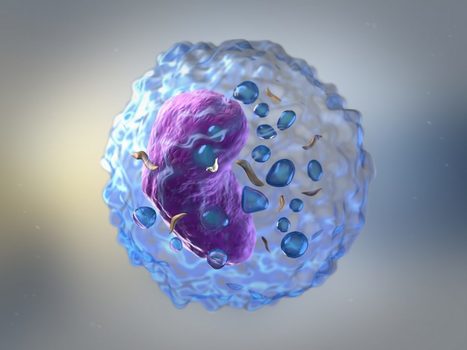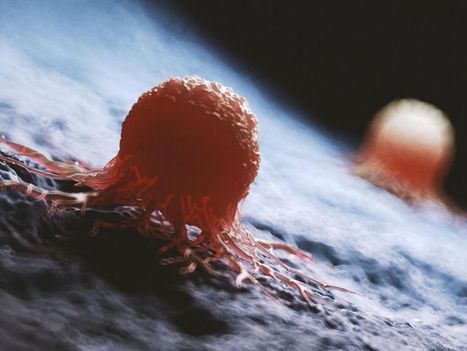A new approach that delivers a "one-two punch" to help T cells attack solid tumors is the focus of a preclinical study by researchers from the Perelman School of Medicine at the University of Pennsylvania.
Research and publish the best content.
Get Started for FREE
Sign up with Facebook Sign up with X
I don't have a Facebook or a X account
Already have an account: Login
 Your new post is loading... Your new post is loading...
 Your new post is loading... Your new post is loading...
|
|














One of the challenges of CAR T cell therapy in solid tumors is a phenomenon known as T cell exhaustion. Previous studies have alluded to the inflammatory regulator Regnase-1 as a potential target to indirectly overcome the effects of T-cell exhaustion, as it can cause hyperinflammation when disrupted in T cells, reviving them to produce an antitumor response. The research team hypothesized that targeting the related but independent Roquin-1 regulator at the same time could boost responses further. The team used CRISPR-Cas9 gene editing to knock out Regnase-1 and Roquin-1 individually and together in healthy donor T cells with two different immune receptors that are currently being studied in Phase I clinical trials: the mesothelin-targeting M5 CAR (mesoCAR) and the NY-ESO-1-targeting 8F TCR (NYESO TCR). Following CRISPR editing, the T cells were expanded and infused into solid tumor mouse models, where the researchers observed that the double knockout resulted in at least a 10-fold increase in modified T cells compared to knocking down Regnase-1 alone, as well as increased anti-tumor immune activity and longevity of modified T cells. In some mice, this also led to an overproduction of lymphocytes, causing toxicity.